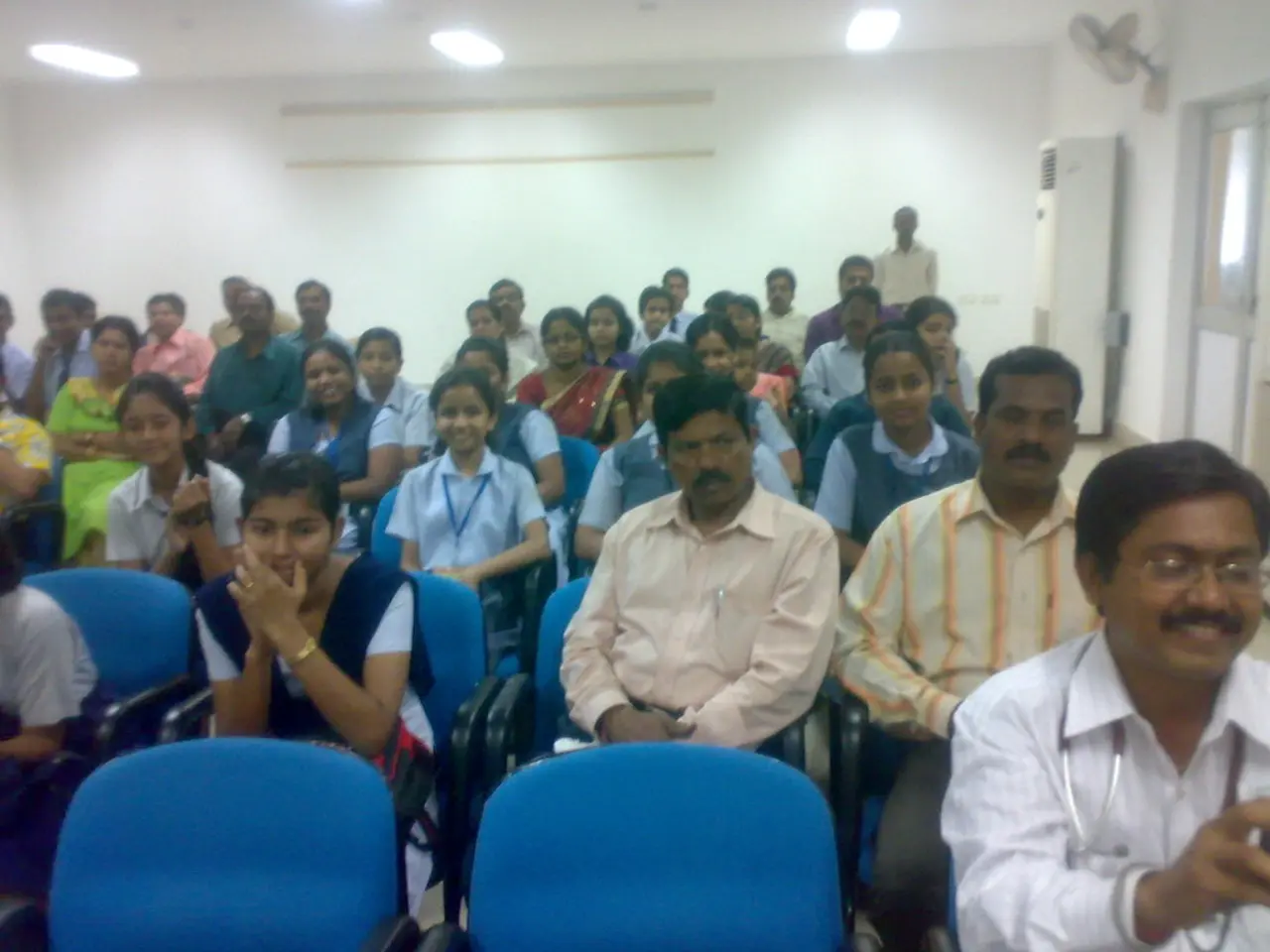Elderly residents admit to hospital emergency rooms amidst intense heatwave in northern Sweden
In the unusual warmth of Sweden's summer, temperatures reaching 25 degrees Celsius are causing a stir, as they stand out as unusually hot compared to the normally cool climate. This localized heatwave, while moderate by global standards, is placing stress on populations unaccustomed to sustained warmth.
The heatwave has prompted hospitals and care homes across the country to take action. In Sunderby Hospital in Luleå, head of emergency care Mattias Josefsson has reported worsening health issues among patients. Cooler temperatures are being used as a heat-relief measure in some wards, with portable air conditioning units and fans being installed to combat the heat.
The heatwave has also led to possible heat-related falls at Sunderby Hospital. To counteract this, cool towels are being used for patients, and electrolyte-rich fluids, such as ice cream, are being offered to help manage dehydration.
Similar measures are being implemented in care homes across the region. The trend of heat-exacerbated symptoms among older patients is particularly concerning, with managing fluid intake becoming harder for some.
The national weather agency, SMHI, has issued frequent warnings about the heatwave. Parts of northern Sweden have seen temperatures above 30C in recent days, making the need for heat-relief measures all the more urgent.
Hospitals and care homes are doing their best to combat the heatwave. By providing patients with fluids containing electrolytes, using cool towels, and installing portable air conditioning and fans, they aim to alleviate the impact of the heatwave on their patients.
[1] Climate Central [2] The Local [3] BBC News
[1] Climate Central reports that with rising temperatures, chronic diseases like respiratory conditions and mental health issues may escalate. [2] The Local highlights the growing concern for mens' and womens' health as heatwaves become more frequent, with higher risks of dehydration, heat exhaustion, and the aggravation of medical conditions. [3] BBC News discusses the impact of climate change on environmental science, emphasizing the increased prevalence of heatwaves and the subsequent stress on health and wellness, workplace-wellness, and fitness and exercise, as well as the need for preventive measures like nutrition, skin care, and therapies and treatments. [4] In response to the heatwave, scientific research is being expedited to explore skin care solutions that can protect against harmful UV rays and alleviate sunburns, a common problem in warmer weather. [5] As the weather becomes warmer, using weather forecasts from meteorological agencies like SMHI becomes crucial for preparedness and adapting to climate change, which can in turn lead to better health outcomes for populations worldwide. [6] Moreover, the heatwave in Sweden has drawn attention to aging populations, particularly the importance of proper nutrition in maintaining skin health and combating heat-related health issues. [7] The intersection of environmental science and fitness and exercise is becoming increasingly relevant as climate change affects the availability and safety of outdoor spaces for physical activities. [8] Organizations like The World Health Organization are collaborating with governments and organizations to develop comprehensive strategies for addressing the effects of climate change on health and wellness, stressing the importance of multi-faceted approaches to ensure the well-being of all communities in a changing climate.




